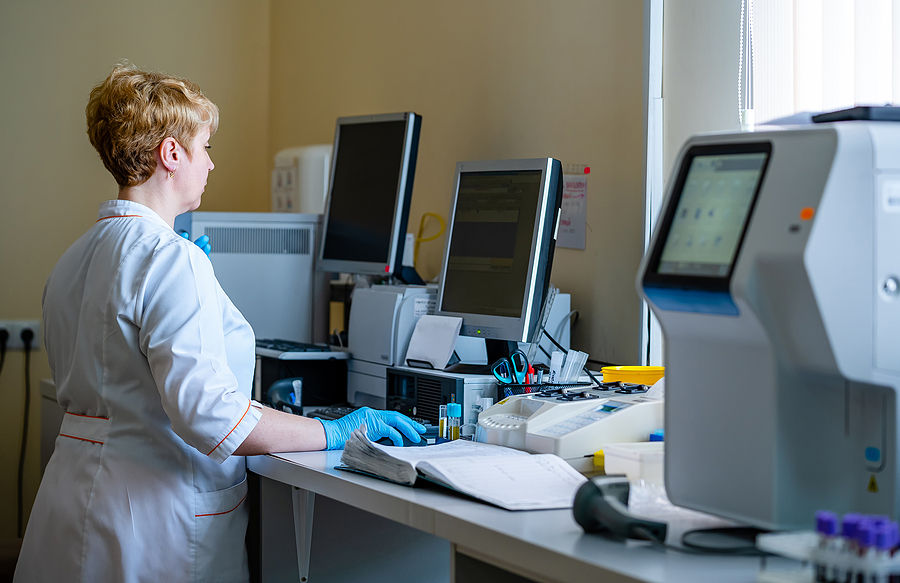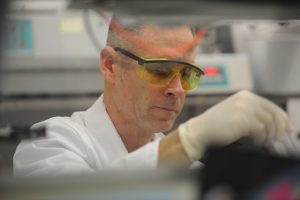
Modern oncology is in the midst of radical change as the fruits of the Human Genome Project show promise in diagnosing and treating cancer. New microarray testing and tests designed to detect methyl, a chemical linked to cancerous cells, are among the many new DNA testing methods designed to help patients live longer through earlier detection and treatment. Here, UT-Austin Professor Kevin Dalby discusses DNA testing – a precision-based smart weapon in the war against cancer.
To gain an understanding of all the human genes, the Human Genome Project was launched in 1990. Completed ahead of schedule and under budget in 2003, this thirteen-year endeavor has been an overwhelming success. With the resulting ability to compare different individuals’ HapMap, scientists can identify critical areas of genetic variation and establish connections between particular genes and disease.
There are precision genetic tests available today designed to help doctors predict a patient’s risk of developing certain cancer types. The types of cancer that genetic tests have proven useful include:
- Prostate cancer
- Thyroid cancer
- Breast cancer
- Melanoma
- Ovarian cancer
- Colon cancer
- Pancreatic cancer
- Kidney cancer
- Stomach cancer
Combined with knowledge about a patient’s family history with cancer, identifying specific changes in genes, chromosomes, or proteins can lead to earlier detection. Early detection provides more treatment options and an increased chance for survival. For example, women whose breast cancer is detected at an early stage have a 93 percent survival rate in the first five years.
The presence of a gene mutation within a family does not necessarily mean that all or any family members with those DNA traits will develop cancer. Several factors influence whether a person will develop cancer, but these new diagnostic methods significantly amplify the arsenal at an oncologist’s disposal.
The following features of personal or family medical history may suggest an increased risk of hereditary cancer characteristics.
- Cancer diagnosed at a young age;
- Multiple types of cancer developed in the same person;
- Cancer in both organs of a set of organs, such as both kidneys or both breasts;
- Parents, siblings, or children with the same type of cancer;
- Rare cases of a particular cancer type (for example, breast cancer in a man);
- The presence of congenital disabilities that are known to be associated with inherited cancer syndromes;
- Being a member of a racial or ethnic group that is known to have an increased risk of developing inherited cancers;
- Many family members with cancer.
A genetic counselor or health care professional experienced in cancer genetics research can provide additional information about genetic testing’s appropriateness and the potential harms and benefits of testing.
It is important to remember that, unlike other medical tests, genetic tests can disclose information about the patient being tested and that person’s family members. Because of the implications for other family members, relationships can be affected when one family member discloses genetic test results.
About Kevin Dalby
Dr. Kevin Dalby is a UT-Austin medicinal chemistry professor. He is researching the mechanisms of cancer cell signaling to develop targeted therapeutics. Dr. Dalby’s efforts were recognized by the Cancer Prevention and Research Institute of Texas (CPRIT) and the National Institutes of Health, granting him nearly $5 million to support his research.
John Davis is a seasoned health journalist with expertise in public health and medical research. Holding a degree in health sciences, John excels in making complex health topics understandable and engaging for his readers. His articles, featured in top health publications, cover everything from cutting-edge treatments to public health policies. Outside of journalism, John is an advocate for health education and frequently speaks at community events.





